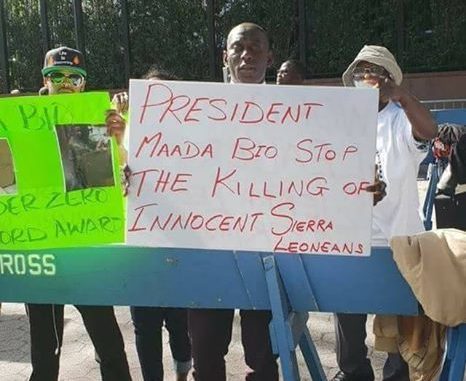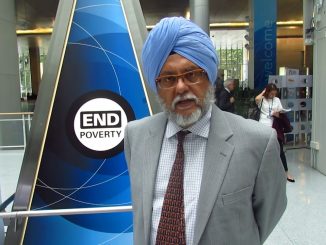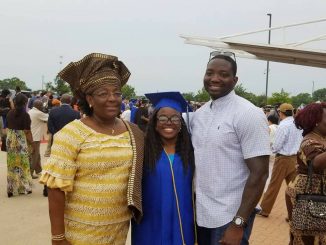
CCULLED FROM THE NIGHTWATCH NEWSPAPER
Since 1962, a year after independence, Sierra Leoneans are known for going to the ballot box to choose their leaders or ensure political transitions without using bullets, guns and bombs.
The use of bullet however occurs in exceptional situations where the army intervene in politics to exercise political power. Even when the khaki boys take over power by force, one day they will revert to the ballot box to hand over power to civilian authorities.
In 1967 (five years later), there was another election contested by the then ruling Sierra Leone People’s Party (SLPP) and the opposition, All People’s Congress (APC), an election that was also eclipsed by controversy.
11 years later, elections however ceased temporally through the creation of one-party state apparently for the peace and stability of the state.
But, subsequent military intervention brought back multi-party democracy in 1996 when ECSL (Electoral Commission for Sierra Leone) held an election that was contested by several political parties. The political events of 1997 and 1998 in which the people of Sierra Leone stood against the Junta government of Johnny Paul Koroma and the protest against, Sierra Leone’s ex-rebel leader, Foday Saybana Sankoh to bring back stolen democracy would hardly fade from Sierra Leoneans’ minds.
Despite their display of strength, the military leaders were brought down in somewhat historic episodes that sent loud and clear messages that Sierra Leonean society would no more tolerate bullet to reign.
Even events leading to the 1996 elections in which the NPRC (National Provisional Ruling Council) was brought under pressure for democratisation was also another great testimony of the people’s resolve to protect democracy at all cost. Those who witnessed history firsthand would not forget the Bintumani Conferences which were platforms used to force defunct NPRC regime to hold elections without the use of bullet.
Four successive elections have taken place after 1996 polls with the continuation of the multi-party culture in a country where democracy is still an evolving phenomenon.
The people are also ready to put up the same defence for subsequent elections in Sierra Leone’s body politic including the latest 2023 polls which has ended in a seemingly unresolved fiasco.
Instead of using bullets to take power, Sierra Leoneans will use the ballot box to unseat governments at the expiration of their terms regardless about whether they ruled only for a term. The people can however continue with a particular government if they feel satisfied with their performance.
It was exactly the people of Sierra Leone demonstrated in the June elections as the people came out in their numbers to have a government of their choice in spite of the political violence, intimidation and harassment by the security forces. The people hoped to lift the shadows of tyranny with their votes. Indeed, the people voted, but their votes were allegedly converted in favour of the ruling party, a situation that has provoked and fuelled an electoral stand-off yet to be resolved.
According to a senior opposition politician, Ambassador Foday Osman Yansaneh, the name of his party, APC came from the EBIM (Elections Before Independence Movement) championed by then President Siaka Stevens, Sierra Leone’s third Prime Minister and first executive President.
The culture of APC taking power through elections became a celebrated one throughout the ages with no difference in June 24, 2023 elections.
The people of Sierra Leone especially APC members, supporters and sympathisers as well as the international community did not accept the outcome of the June elections saying it lacked Transparency for which a Tripartite Committee was formed to establish the truth.
According to the terms of reference launched two months ago and Clause-3 of the October 18, 2023 communiqué, the Tripartite Committee bears the onus of looking into alleged electoral irregularities.
As the committee was about to round up its work, SLPP politicians are threatening to use bullet for bullet if the situation calls for it.
President Julius Maada Bio made the statement during a meeting with SLPP members and supporters in Sierra Leone’s second capital city, Bo, in the Southern region.
No one knew exactly to whom President Bio was referring to when he made such statement at a time solutions for lasting peace are being sought.
Suffice it to say that the people were stunned and shocked by the President’s statement as they expected government to embrace everyone for now and chart the way to real peace and national cohesion.
According to several social and political commentators, President Bio’s threats could send large crowds to the streets, but the people would not easily answer the call for protest until the Tripartite Committee announces their findings and recommendations.
The people’s demands have been laid bare, and one of them must be met, that is, either a rerun or fresh election is held or the opposition leader, Dr Samura Kamara declared President of Sierra Leone. Deviation from such demands could lead to protest and insecurity.
The people of Sierra Leone could bank on the findings and recommendations of reports submitted by local and international election observation missions which indicated that the election was not free and fair.
EU reports captured incidents of political violence and thuggery against opposition politicians and supporters as well as assassination attempts on the opposition leader.
During a press briefing held two days after the June polls, EU Chief Election Observer, Ivin Incir spoke about incidents in which security forces fired live rounds at APC headquarters in Freetown resulting into fatalities.
G7+, ECOWAS, African Union and Commonwealth Election observers also shared similar facts on the election.
The Carter Centre report did not only condemn the election but also recommend accountability for those who allegedly undermined democracy by way of election rigging and theft of votes.
The Tripartite Committee is the beginning of accountability in Sierra Leone as key election officials including the Chief Electoral Commissioner, Mohamed Kenewui Konneh has reportedly appeared before the committee and submitted the required documents.
NEW (National Elections Watch), the umbrella body of civil society organisations specialised in election reporting, also condemned the electoral process.
Relying on the PRVT (Process and Result Verification for Transparency), NEW head, Marcella Samba Sesay made it clear that none of the candidates got the 55% threshold needed to avoid a run off.
According to facts presented by NEW, President Bio did not win the election and the people demand that he either steps down or allows a second round voting to determine who the actual winner is.
But, Bio’s latest threats have shown that he is not ready to go into an electoral compromise with any political party as he maintained that the election was over and that the political big guns and the people of Sierra Leone should look forward to 2028.
In a counter-response, the people of Sierra Leone does not accept the PAOPA regime, but will not use bullets but promised to protest peacefully as laid down by established procedures.
Information reaching this press indicate that Sierra Leoneans within and out of the country are prepared to speak up by way of protest to send a loud and clear message to the international community that they want back their votes. It could be quite a bit different from previous protests where people took to the streets without following due procedures.
The laws of Sierra Leone particularly the Public Order Act, 1965 recognises the right to stage protests and processions, but permission must be sought from the police force, the principal law enforcement agency.
Sierra Leone is a signatory to several conventions that guarantee citizens the right to protest and petition government, but local security services, over the years, have trampled on these rights with the use of the guns and teargas canisters.
But, this time, the people would file in their applications to the ECOMSIL, the new ECOWAS troops that would come to Sierra Leone as a stabilisation force. The people believe that protest without bullet will bring in fresh election for the people to choose the new government.




Leave a Reply